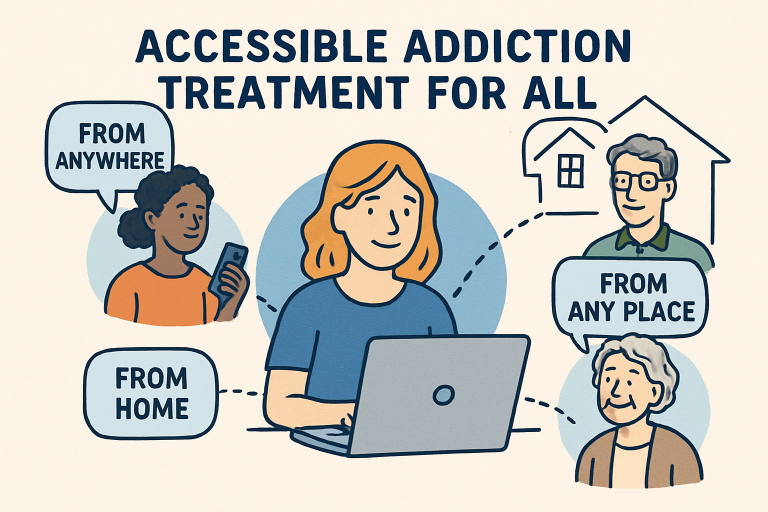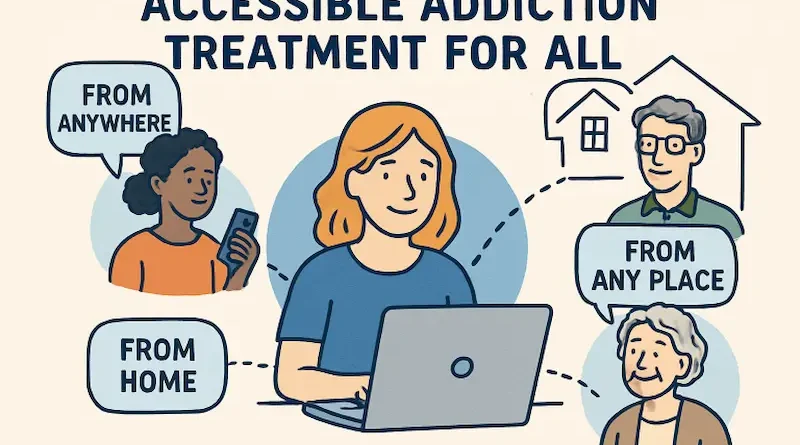Creative Ways to Make Addiction Treatment More Accessible
Despite advances in mental health awareness, millions of Americans still struggle to access quality addiction treatment. Barriers such as cost, transportation, and stigma prevent many from accessing life-changing care. As providers and policymakers seek solutions, creative approaches are paving the way for more people to embark on their recovery journey.
Efficient and equitable access to addiction care is crucial for positive health outcomes and long-term recovery. Those who lack proximity to providers or face financial hardship can especially benefit from innovative options tailored for their unique needs. For instance, rehabs in Virginia that accept Medicaid provide crucial support for individuals who might otherwise be unable to afford treatment, ensuring that financial constraints do not block access to life-saving care. Embracing technology, community-based outreach, and broader policy reforms means more pathways to recovery and healthier communities overall.
Whether supporting someone in rural Appalachia or a densely populated city, the next wave of addiction treatment solutions needs to be adaptive, holistic, and accessible to diverse groups. Governments, healthcare professionals, and local advocates must work together to implement these strategies effectively.
Access to timely treatment can dramatically reduce overdose deaths, improve quality of life, and bolster social support structures. As the opioid crisis and other substance use epidemics continue to evolve, so too must our collective response.
Telehealth Services
Telehealth has emerged as a transformative force in addiction care, especially during the COVID-19 pandemic. Remote therapy appointments, support group meetings, and medication monitoring offer convenience and privacy, enabling patients to participate from the comfort of their own homes. Telehealth is a lifeline for rural residents, people with disabilities, and anyone facing transportation barriers.
Mobile Treatment Units
Mobile clinics deliver core addiction services directly into high-need neighborhoods, reducing wait times and travel distances. These units are typically staffed by licensed addiction counselors, nurses, and peer specialists who provide assessments, counseling, and necessary medication management. By breaking down location and mobility barriers, mobile treatment units ensure that care reaches those who need it most.

Virtual Reality Therapy
Virtual reality (VR) therapy allows patients to practice managing triggers and cravings in a safe, simulated environment. Under professional supervision, individuals are exposed to scenarios that might challenge their sobriety and practice real-time coping techniques. According to the American Psychological Association, psychologists are increasingly utilizing virtual reality to enhance treatment outcomes, demonstrating how immersive experiences can complement traditional therapies and equip patients with practical skills for navigating challenging situations. This experiential learning empowers participants with firsthand strategies to maintain sobriety in real-world contexts.
Personalized Care with AI
Artificial intelligence (AI) streamlines the recovery process by analyzing data to individualize treatment. AI-enabled systems can mine patient history, responses, and behavioral indicators to predict relapse risks and fine-tune therapy approaches. These technologies support providers in crafting more effective, adaptive care plans—ultimately leading to better outcomes for patients. From predictive algorithms to automated text reminders, personalized digital tools are raising the bar for addiction recovery.
Community-Based Support Programs
Community-led initiatives are critical in supporting sustained recovery. Partnerships between local non-profits, housing agencies, and faith-based organizations create integrated support networks that address more than just substance use. Services often include job training, housing assistance, counseling, and family therapy—empowering individuals and their communities alike. Peer support groups also offer lasting connection, empathy, and accountability, strengthening each participant’s commitment to recovery.
Integrated Care Models
Integrated care brings together addiction treatment, mental health services, and primary care under one roof. By adopting a holistic philosophy, providers address the physical, emotional, and social factors that influence addiction and recovery, as explained by the Mayo Clinic. This all-in-one approach improves care coordination and reduces health disparities, making sustained recovery more achievable for diverse patient populations.
Leveraging Technology for Relapse Prevention
Innovative mobile applications, wearables, and online forums offer around-the-clock support for individuals in recovery. These digital platforms feature educational modules, self-monitoring tools, and crisis intervention resources. Real-time feedback empowers individuals to track progress and recognize warning signs before relapse occurs, bridging the gap between traditional treatment settings and everyday life.
Policy Reforms and Funding
Structural barriers to addiction treatment often stem from restrictive policies and underfunded programs. Removing limits on insurance coverage, investing marijuana tax revenue into addiction services, and expanding Medicaid eligibility are just a few policy solutions making waves nationwide. Legislative actions that prioritize treatment funding—especially for underrepresented groups—extend the reach of effective care and save lives.
Advancing access to addiction treatment demands creativity, collaboration, and an unwavering commitment to equity. By championing these strategies, we can help break down the barriers to recovery and provide hope for individuals and communities impacted by substance use disorder.
Visit the rest of the site for more interesting and useful articles.

